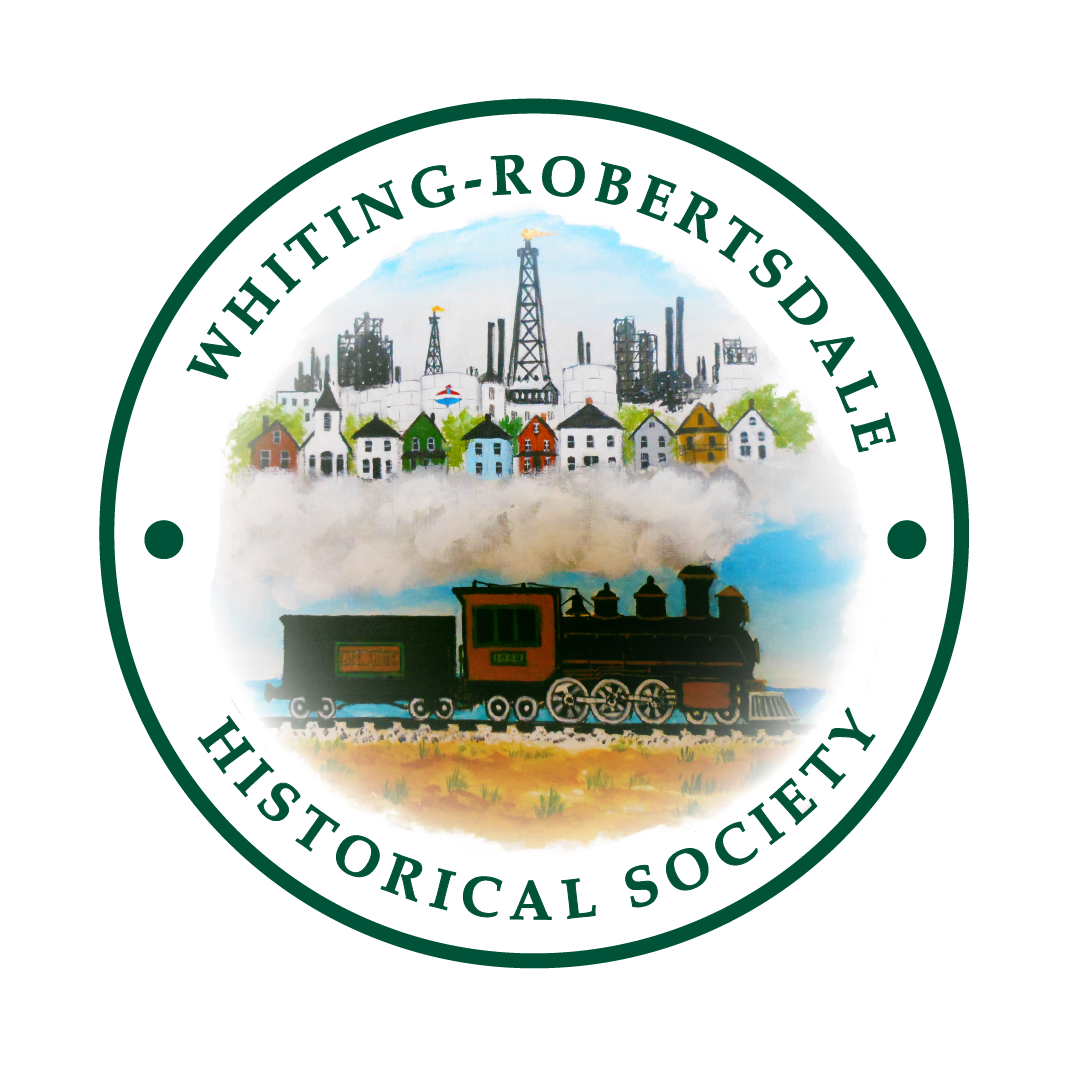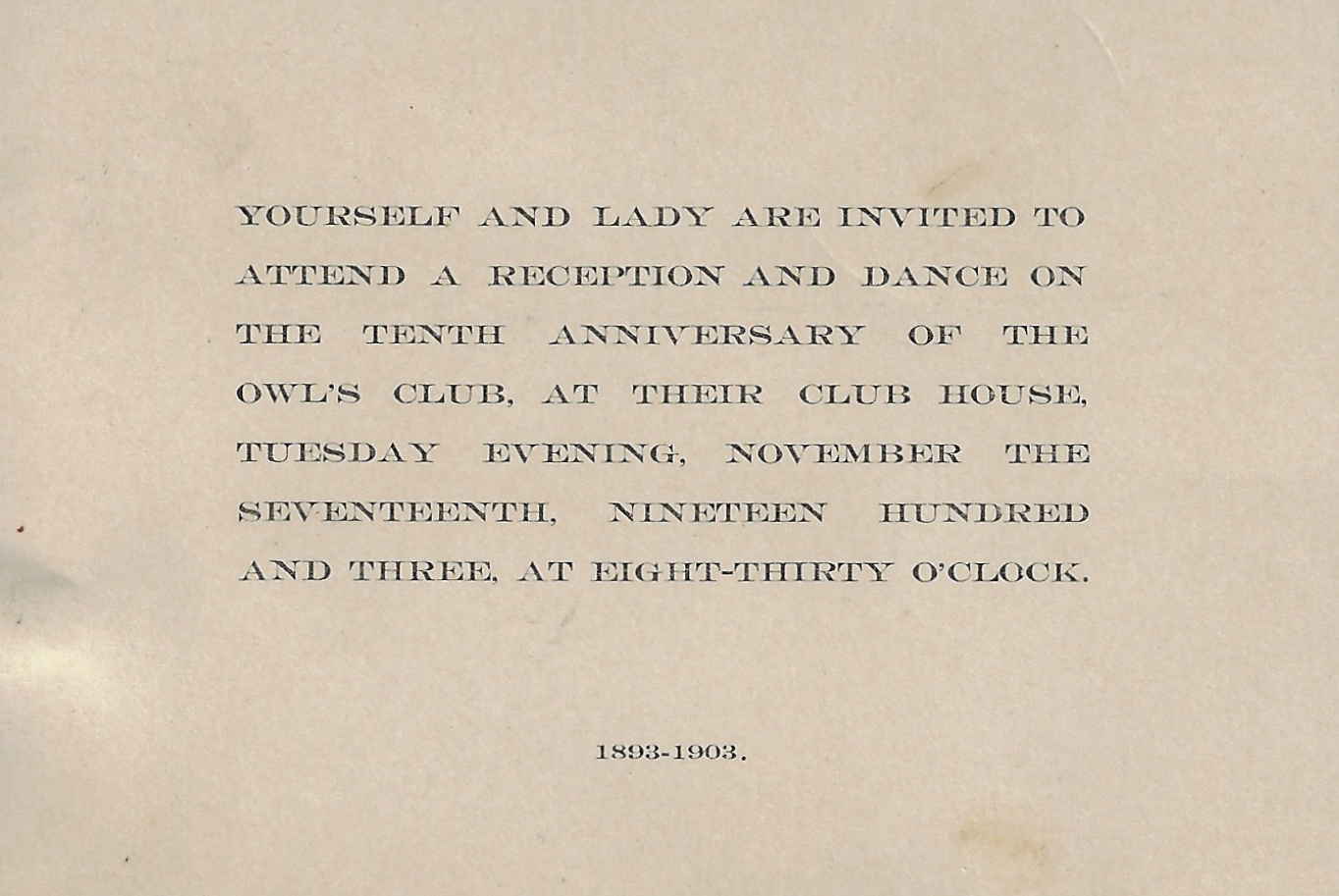The Whiting Owls Club: 91 Percent Fought for their Country
By John Hmurovic
July 2018
One hundred years ago, 589 men from Whiting-Robertsdale uprooted their lives to help their country. America was in a World War, and the people who lived here wanted to help. The men who left to join the military came from all parts of the community, but one group, the Owls Club, stood out. The reason: Of the 100 members of the club, 91 signed up for the fight.
Ninety-one percent is an impressive number, but the Owls Club was an impressive group of men. Its list of founders, all young men in the early stages of their careers at the time, reads like a Who’s Who in the history of Whiting and the Standard Oil Company. The first president of the club, William Rheem, went on to become president of Standard Oil of California. Its first vice-president, William Burton, later became president of Standard Oil of Indiana. Board members E.M. Clark and William Barstow became refinery managers, as did William Warwick, who also served as Whiting’s first mayor. And that’s only part of the list.
The Owls Club was formed in 1893, when Whiting was little more than a few homes, a few businesses, a refinery, railroad tracks and lots of sand and swamps. For the young men who Standard Oil hired to run its new refinery, Whiting was a boring place to live. So, they formed a club.
The Owls Club was a social and athletic organization. After a few years of meeting at other locations in town, they built their own clubhouse at 119th and Pennsylvania, today the location of the Elks Club. In their clubhouse they had boxing, wrestling and other games and sports. Their billiard tables were popular. Jacob Schaefer once played there. He was the best billiards player in the world in the late 1800s. The club also brought in bands, orchestras, singers, comedians and speakers. They were known for their minstrel shows and their dances, particularly the New Year’s Eve dance. The dances were popular social events for Whiting’s early 20th century “elite.”
They also had a baseball team, but it was their basketball team which won the Owls Club many honors. The Owls were one of the best in the region. They took on and beat college teams, like the University of Chicago, Wheaton College and Hope College. They played all comers, such as a team from Chicago’s Hull House, and the Tin Mill at U.S. Steel in Gary. They usually won, and when a team of New York professionals toured the Midwest in 1915, the Owls were one of Middle America’s best hope of defeating them. The New York Nationals, including future basketball hall-of-famer Elmer Ripley, crushed the Owls 107 to 40…which was actually better than most of the other teams in the Midwest fared.
The Owls won a state championship in 1918, playing before a packed house inside Whiting’s Slovensky Dom. Back in those days, though, the rules must have been fairly lax on who could join a team. Because for that 1918 championship game, two players from the Great Lakes Naval Academy team were recruited to play. One of them, who donned the Whiting Owls uniform, was George Halas, who went on to become the founder of the Chicago Bears and a legend in football history.
Even as that game was being played, the membership of the Owls was in decline due to the war. By July of 1918, 68 club members were in the service of their country. By time the number of Owls Club members in the service reached 91, the club was in danger of folding. But former members rejoined to keep the club alive.
While their friends served overseas, those left behind turned the Owls clubhouse into a center for war preparedness. National Guard members had been called into active military duty during the war, so the Liberty Guard formed to provide a militia for use in state emergencies. The Liberty Guard of Whiting used the Owls clubhouse for their drills. The club also published at least three issues of a news magazine which it set to Whiting-Robertsdale soldiers overseas, including non-members. The publication gave the soldiers news from home, and about other Whiting-Robertsdale men serving their country.
Whiting-Robertsdale lost 14 men in World War One. The Owls Club lost two. One was James Dillon, who actually lived in Chicago, not Whiting-Robertsdale. Dillon was a basketball playing member of the club, He died of influenza in the final days of the war. Frank Girard was the other Owls Club casualty. He was gassed at the Battle of St. Quentin Canal, and died of pneumonia while at a hospital in France.
Girard and Dillion made the ultimate sacrifice for their country, but all of the Owls Club members made Whiting proud. As one local newspaper put it in 1919: “The number of ordinary, everyday lads who spent their odd hours in the environment of this club and then when the crucial test came, the call to arms to support their country, turned out practically en masse to lay their lives on the sacred altar, is proof in plenty of the value of such an organization. No such record has been made in all America, and in the far countries where the battles for freedom were fought, the knowledge of this fact elicits wonder and praise whenever it is divulged.”
The Owls Club remained a part of the Whiting-Robertsdale community until the mid-1930s.






